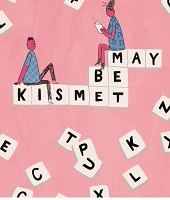
AOL Travel: “When Santa Rinpoche Came to Town”
by Lavinia Spalding (google+)When I was young, I was a stickler for Christmas traditions. If my father forgot to wear the Santa Claus hat, I pouted. If we didn't watch "How the Grinch Stole Christmas," I cried. If hot cocoa wasn't served with breakfast, I was capable of a four-star conniption. Dinner was roast goose or Yorkshire pudding -- any substitutions and I about lost my mind.
By all accounts, I wasn't actually a difficult child, but when I was 10 we moved from New Hampshire to Arizona, and I didn't adjust well. I missed our farmhouse and my friends, and I clung to these annual rituals because they made our new house feel like a home. And then I continued clinging, for 20 more years, until the Christmas I learned to let go.
I was living with my sister, Blake, that year in a tiny, remote town in southern Utah. She owned a restaurant, and I waited tables there. Blake had become a Buddhist a decade earlier, and I'd recently taken lay practitioner vows. Our teacher, Khentrul Lodrö Thayé Rinpoche, was a Tibetan lama who traveled the U.S. teaching all year long, except for a 2-week break during the winter. That year, he decided to spend Christmas with us.
We were, to put it mildly, atwitter. Like many lamas, Rinpoche was funny and wise and perpetually cheerful-but to us he was also holy. It was an honor even to dine with the man; the thrill of having him to ourselves for 14 days was almost unbearable. We couldn't wait to share our favorite holiday with him.
Neighbors began stopping by to visit Rinpoche, often to ask about Buddhism. One day he gave an informal Dharma talk, emphasizing the importance of letting go of attachments. "Happiness," he explained, "is easy for those with no preferences."
The day before Rinpoche arrived, Blake and I put up a tree but decided to hold off on decorating until we were all together. "He'll think it's fun," she said.
But when our teacher walked in and saw the fluffy fir tree dominating the corner of the living room -- and Blake's chocolate lab lying beside it wagging her tail -- he laughed. Tibetans, Rinpoche explained, found the concept of bringing a tree, or even plants, into a home truly bizarre. "Americans build big houses with walls to keep out the nature and animals," he said, "and then they have to spend all their time cleaning because they bring in the nature and animals!" He howled with laughter, then gamely hung a few ornaments before settling on the sofa to watch, bemused.
Blake and I finished decorating the tree, but this time we didn't linger over ornaments -- we were too excited to sit down and hang out with our lama.
For the next 2 weeks, Rinpoche learned about Christmas. He found it amusing that a pair of Buddhists could get so worked up over a Christian holiday, but he was genuinely intrigued by Santa Claus. He liked the idea of a jolly man who watched over every little boy and girl, rewarding good conduct and inspiring unwavering faith. Whenever Rinpoche encountered children in town, he asked, "Do you believe in Santa?" And when they answered yes, he'd beam. "Wonderful!" he'd say. "Is he bringing you something good?"
Meanwhile, we struggled over gifts for him. What do you buy for the monk who has renounced worldly possessions and lives out of one suitcase, who has almost nothing and needs even less? We were relieved when his translator emailed to suggest he could use new socks. We bought him some -- maroon to match his robes -- along with an insulated to-go cup for tea (maroon) and a winter scarf (maroon). We literally high-fived when we found maroon luggage tags. But, finally, we kind of gave up. Rinpoche didn't need gifts, we realized. He just needed some rest.
Since our town offered little to do in the winter, relaxation wasn't hard to deliver. In the afternoons we took long walks, our breath hanging white in the air, the only sound our boots crunching through the thick snow. Hawks sailed overhead, and deer skittered across the road. We worried about Rinpoche staying warm, dressed in his robes with bare legs underneath, but he waved off our concerns. The crisp air, silence and vast expanses of undeveloped land reminded him of Tibet.
One morning Blake taught Rinpoche to juggle. After observing her closely, he mastered it on his first attempt. Another afternoon a friend brought over a Nepalese game called Bagh Chal, like checkers but played with small brass tigers and goats. We spent hours jumping miniature animals over each other.
Neighbors began stopping by to visit Rinpoche, often to ask about Buddhism. One day he gave an informal Dharma talk, emphasizing the importance of letting go of attachments. "Happiness," he explained, "is easy for those with no preferences." The mayor dropped by to receive a blessing, and the Mormon girls from next door came over, wearing long prairie dresses and braids to their hips. They flanked Rinpoche on the sofa while he read aloud from Blake's tattered copy of "Rudolph the Red-Nosed Reindeer."
Although his English was excellent, every few days Rinpoche requested a lesson. He'd brought along a book of Tibetan folk tales, with titles like "How the Louse Got the Black Streak Down His Back" and "How the Sacred Duck Got His Yellow Breast." We sat by the wood stove, and while he read aloud about yak herders and hunters, I corrected his pronunciation. Almost every story had a moral of mindfulness or compassion, and he always checked to make sure I'd noticed. "You see?" he'd ask, pointing to the page, "This man was never angry, so he was rewarded."
One cold night Blake and I went caroling on a flatbed truck laden with hay bales and local kids. Rinpoche declined the invitation to join us, but he followed us outside, curious. Before the truck rolled away, we serenaded him. As we belted out "Joy to the World," he stood in the moonlit walkway, smiling and listening attentively. When we finished, he waved and retreated into the warm, quiet house, and we drove off to sing to our neighborhood, feeling truly joyous.
Other evenings we stayed in watching movies and TV. But instead of "The Grinch" or "The Muppets," we watched "Bonanza" and "Tombstone." Rinpoche liked westerns-he appreciated that the good guys with nice horses always prevailed. Blake and I had no problem skipping the old Christmas specials; Rinpoche's John Wayne impersonation was practically flawless.
As Christmas day approached and more traditions were modified or forgotten or quietly abandoned, I found myself -- for the first time ever -- not minding. On Christmas Eve we cooked Tibetan stew and momos. On Christmas morning, we served butter tea. And as we gathered by the tree that afternoon with a group of family and friends, it occurred to me that it wasn't the traditions that made a home, it was the people you invited in. I handed Rinpoche a Santa Claus hat to try on, and he wore it all day long.
-
The New York Times, Modern Love: How I Learned to Trust (Some) Men
-
The New York Times, Modern Love: “Goodbye, My Fantasy Man”
-
AFAR Magazine: “Playing by Heart” (Winner of a Gold Lowell Thomas Award)
-
Longreads: “The Cabin”
-
River Teeth: A lot of Tomorrows
-
Going: New Orleans, The Southern US City Where Jazz Was Born
Parents: I Grew Up in a Haunted House—Here’s What I Tell My Child About Ghosts
AFAR: Seoul Food
Off Assignment, Letter to a Stranger: “To the Shopkeeper in Fez”
The Bold Italic: “Working Three Jobs Nearly Killed Me”
AirBnB Magazine: “So I Slept in a ...Cave”
AAA Westways Magazine: “Korean Encore”
AFAR.com: “Everything You Need to Know About Jazz Fest”
AFAR.com: “Get Beyond the Beads: The 101 on Mardi Gras Throws”
AFAR.com: “The Art of Eating Crawfish in New Orleans”
AFAR.com: “Find New Orleans’s Soul at These 6 Mini-Museums”
Ms. Magazine: “Politics is on the Menu at Hell’s Backbone Grill”
AirBnB Magazine: “New Orleans for the Celebratory”
Off Assignment, Letter to a Stranger: “To the one who was supposed to get away”
Off Assignment, Letter to a Stranger: “To Old Johnny”
Viator: “Coming Full Circle”
World Hum: “How Korean Karaoke Changed my Life”
Independent Bookstore Day’s anthology: “My Lesson from Hell”
Sunset Magazine: “Carried Away”
-
The New York Times, Modern Love: “Goodbye, My Fantasy Man”
I wasn’t willing to settle for less than kismet. But chasing a romantic illusion nearly kept me from finding love. -- The night I agreed to try online dating, I told my roommate Meghan I hoped I wouldn’t meet anyone because that wasn’t the kind of story . . .
-
River Teeth: A lot of Tomorrows
We are at the dinner table when my young son asks, “The day after a lot of tomorrows, will we build a treehouse?” I want to scoop him in my arms, this boy so eager and fresh, so tall his forehead meets my shoulder. If I could, I would lift his body above . . .
-
AFAR: Seoul Food
I still clearly remember my first meal in South Korea. I had just arrived in the country, fresh out of college and ready to begin a job teaching English. My new boss had whisked me from the airport to a barbecue restaurant, where I’d watched in panic as . . .
-
The New R&R
. . .



























